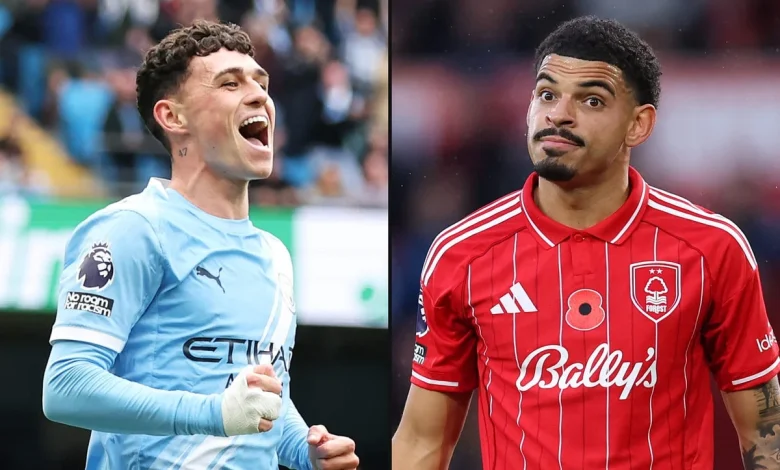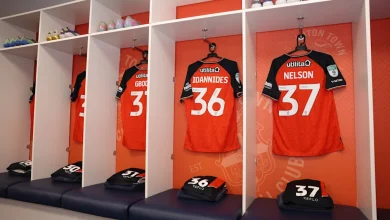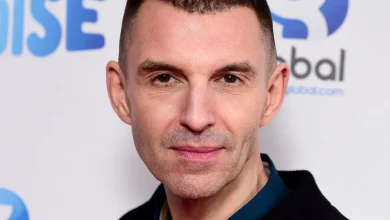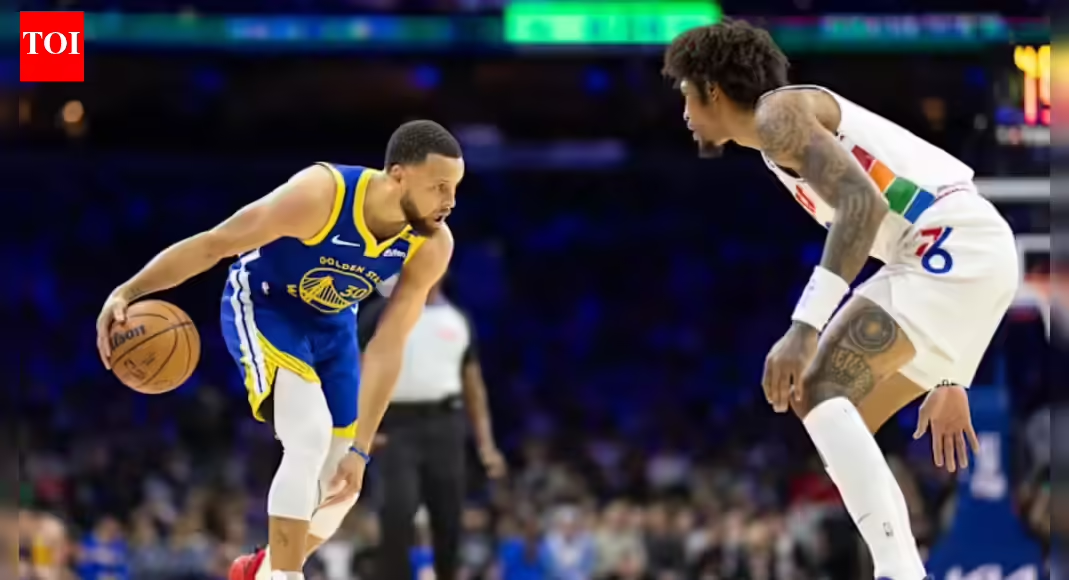Analysing Tuchel’s big England calls: Foden and Wharton in, Gibbs-White and Watkins out – The Athletic

Thomas Tuchel’s final England squad of 2025 was also one of his most notable.
While the recall of Jude Bellingham was widely expected, decisions around the periphery of the squad — both in who he included and who he left out — offered some clues as to where the head coach is looking as he turns his attentions to the 2026 World Cup, which England secured qualification for last month.
Our experts analyse his more intriguing decisions.
Adam Wharton (Crystal Palace): In
Adam Wharton might feel luck has not always been on his side with England.
A groin injury sustained during Euro 2024 caused him to miss a chunk of last season, limiting his immediate international hopes. Then, after a call-up in September, he injured his adductor in Crystal Palace’s final game before the international break.
He is back in Tuchel’s England squad, however, seeking to add to his solitary senior international cap despite suffering from an illness that ruled him out of starting Palace’s last three games.
His appeal is obvious: he offers something different, even unique, in his passing and vision, as well as the confidence to execute under pressure.
Although the 21-year-old has continued to excel at Palace, it has not been a perfect start to the season. But he still consistently demonstrates ambition and desire alongside his talent.
This recall will be part of continuing to build familiarity with the senior setup, as well as a reward for his performances over the past 18 months.
Matt Woosnam
Adam Wharton is back in the England squad (Clive Mason/Getty Images)
Morgan Gibbs-White (Nottingham Forest): Out
It has been a turbulent few months for Morgan Gibbs-White. Courted by Tottenham in the summer — when they felt they had activated a release clause in his contract — the midfielder was persuaded to stay following conversations with Nottingham Forest owner Evangelos Marinakis during a pre-season training camp in Portugal.
Since signing a new contract, the previously talismanic midfielder has seen a man he was very close to, Nuno Espirito Santo, depart. Then, along with the rest of the squad, he was subjected to 39 days of chaos under Ange Postecoglou.
Gibbs-White has already spoken positively about the impact made by new manager Sean Dyche, but through all of this, there is no escaping the fact that while he has been far from terrible, Gibbs-White has also been far from himself in terms of his performances.
The instinctive, impulsive swagger that had been at the heart of what made him special has been replaced by a man who looks like he is sometimes trying too hard to make things happen.
Gibbs-White has previously been one of the biggest influences on the Forest side. Dyche’s challenge is to get him back to that kind of form, mainly for Forest’s benefit, but also so he can get himself back in the England reckoning.
Paul Taylor
Phil Foden (Manchester City): In
A recall for Phil Foden was deserved last month, but Thomas Tuchel may have been looking for him to prove this was not just a fleeting improvement and that he was capable of prolonged consistency. His performances in the weeks since will have left him in no doubt that he is returning to the levels that saw him named Footballer of the Year in 2023-24.
Foden’s double against Borussia Dortmund on Wednesday underlined his growing influence on this Manchester City team, a dual role that sees him drop deep to connect play while finding space to shoot in the spaces behind Erling Haaland.
It has taken time for Pep Guardiola to trust him in central areas, but he has now been tasked with taking on the responsibility that previously fell to David Silva, Ilkay Gundogan and Kevin De Bruyne.
He has matured from a player who was regularly used on the wing into a tempo setter who understands when to put his foot on the accelerator and when to drop the pace.
It is why Tuchel now sees him as a central player — somewhere between a No 9 and a No 10 — as his ability to find space around the edge of the box and weave magic in tight areas is an ability few others possess. He endured a difficult year after struggling at Euro 2024, but he has rediscovered his mojo.
Foden has not been able to replicate his City numbers at international level, but he is not just displaying a renewed goal threat at club level this season. He looks like the final version of Foden that has been in the making for years.
Jordan Campbell
Jarell Quansah (Bayer Leverkusen): In
It’s a bit of a surprise to see Jarell Quansah included because he has not had the easiest beginning at Leverkusen.
The sacking of Erik ten Hag after just three competitive games made his start tougher than it might have been, but — more than that — Quansah has struggled to develop chemistry with Loic Bade, one of his new centre-back partners, and has been culpable more than once for soft goals conceded.
Is he a talented player worth England’s attention? Absolutely. Are his issues entirely predictable, both in terms of being new to the Bundesliga and arriving in Leverkusen at a time of transition? Also yes. But, based on form alone and his dwindling confidence, this is still a difficult decision to rationalise.
Seb Stafford-Bloor
Jarell Quansah moved to Bayer Leverkusen in the summer (Lars Baron/Getty Images)
Nick Pope (Newcastle United): In
Shot-stopping-wise, few Premier League goalkeepers, never mind England-qualified ones, have been as impressive so far this season as Nick Pope.
Those who watched Newcastle United’s pitiful 3-1 defeat at West Ham United last weekend may be surprised, given Pope was part of a collective horror-show performance and was culpable for two of the goals, but that was an aberration in an otherwise stellar campaign so far.
Pope has kept eight clean sheets across 14 starts in the Premier League and Champions League and has regularly produced match-defining saves across those appearances. Aaron Ramsdale was brought in over the summer to compete with Pope, and while the Southampton loanee has performed well in two Carabao Cup outings, he is not yet threatening the regular starting spot.
Of course, many will question Pope’s kicking, which remains a point of extreme weakness, but his distribution out of hand is strong and he provided a remarkable long-throw assist for Harvey Barnes against Benfica last month.
Ironically, James Trafford, the goalkeeper who may have started the season in Newcastle’s goal had their long pursuit not been thwarted at the last moment by Manchester City, is the keeper to make way for Pope. He cannot get a game for Manchester City and Pope’s regular action makes that an easy swap.
Chris Waugh
Ollie Watkins (Aston Villa): Out
Ollie Watkins’ omission is not a surprise. He has been off-colour for some time, with one goal in his previous 17 club appearances.
The 29-year-old has suffered with a visible lack of confidence in front of goal, exacerbated by being starved of opportunities — Aston Villa have the third-lowest xG in the Premier League, only above Burnley and West Ham United. When big chances have fallen his way, though, Watkins has failed to take them.
While manager Unai Emery has made concerted efforts to rally behind his centre forward, insisting “goals are coming”, Watkins has often proven peripheral in matches.
Villa are feeling Watkins’ toils, having long been relied upon as the chief source of goals. In the previous three seasons, he has hit at least 15 goals, and despite a career trajectory that has shown peaks and troughs, this is the worst run of form he has been on since Emery arrived in October 2022.
Jacob Tanswell
Alex Scott (Bournemouth): In
Alex Scott showed sparks of his technical ability across his first two seasons at Bournemouth, but he has truly kicked on this year, starting with a string of excellent displays for England at the Under-21 European Championship this summer.
The 22-year-old is a willing receiver under pressure and is at his best when allowed to combine quickly with his team-mates. This sequence against Crystal Palace, where he helps move the ball from Bournemouth’s half to Antoine Semenyo on the right side of the penalty box in seconds, is a great example.
He is a capable dribbler, with his 2.1 fouls won per 90 minutes ranking only behind Bruno Guimaraes, Elliot Anderson and Brenden Aaronson among midfielders.
Scott’s start to the 2025-26 season has also seen him become crucial to Bournemouth’s out-of-possession setup. He has won 58 per cent of his 10.6 duels per 90 with his work rate and recovery pace allowing him to defend large spaces in midfield.
Scott currently looks the fittest he has been after struggling with knee injuries in 2023-24 and 2024-25 and is thoroughly deserving of this England call-up.
Anantaajith Raghuraman





